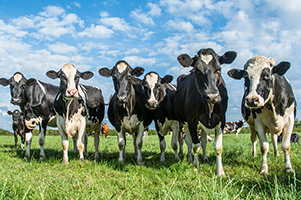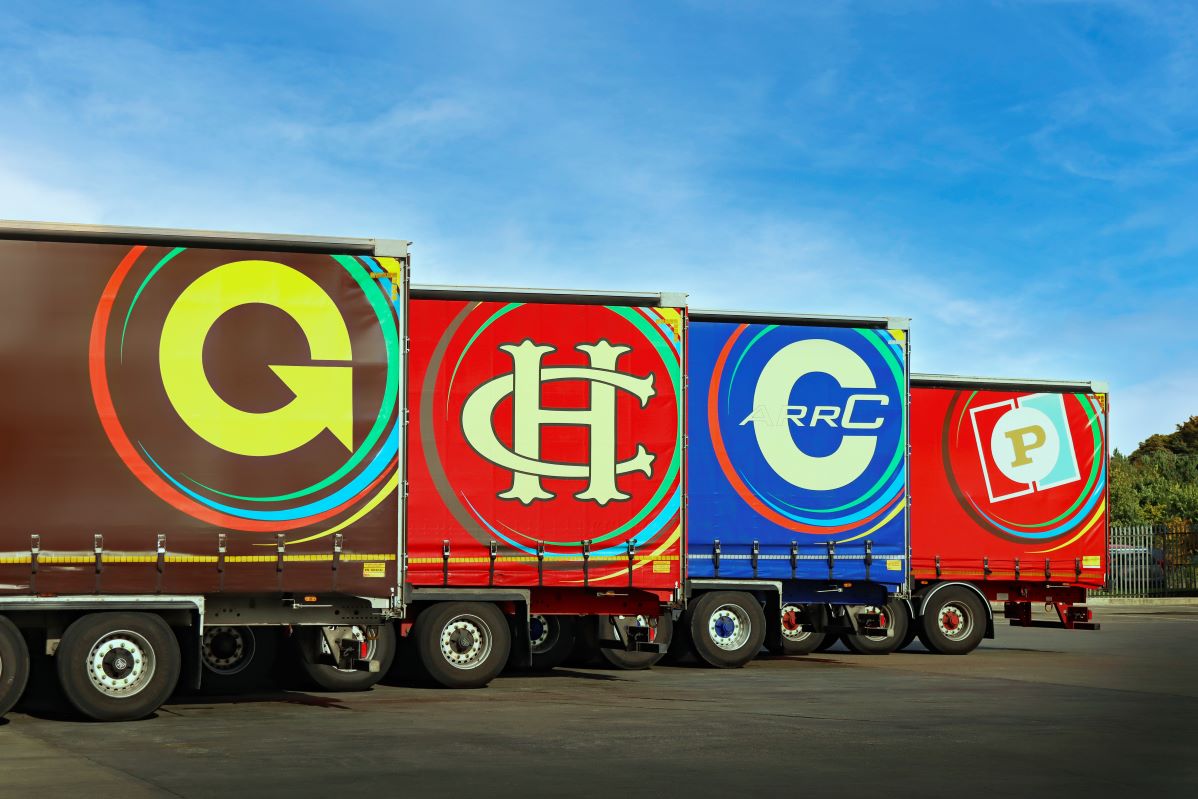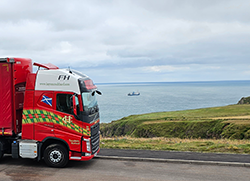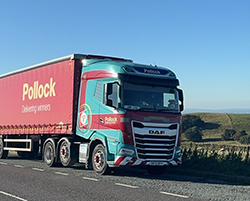Ambient & Chilled Distribution
Dedicated and shared user transport
Storage & Warehousing
Ambient, chilled, and bonded warehousing
Pallet Networks
Pallet hubs in Scotland and the South West
Milk Collection & Distribution
Farm collections and transhipment across the UK
Specialist Transportation
Whatever you need to transport, we can support you

Food & Drink
Extensive experience in this fast paced industry

Retail
Fast, effective, and efficient supply chain solutions

Dairy
Milk transport from UK experts

Manufacturing
A robust and agile supply chain solution

Utilities & Energy
We understand the intricacies of these sectors

Forestry & Construction
A safe, efficient transport service
-min.png)
All Success Stories
See what our customers think of us

Brewdog
Logistics that keep our planet in mind

Amazon
Delivering a sustainable middle-mile solution

Arla
The reliability and service that matters

Garador
The secrets to a long-term logistics partnership

South West Water
Specialist skills for complete peace of mind

Tarmac
A reliable, compliant transport solution
Gregory Group Overview
Heritage, scale, and expertise you can trust
Our People
The right people with the right skills in the right place
Innovation
Always looking to the future by delivering visionary logistics
Sustainability
Leading the sustainability agenda in the logistics sector.
Our History
A strong heritage which spans over 100 years
Corporate Responsibility
Doing things the right way by helping guarantee a future
Latest News
The latest news from across Gregory Group

Our Brand Story
Four brands working together

Gregory Distribution
Delivering winning logistics solutions across the UK

Hayton Coulthard
A solid Scottish brand with a strong heritage

Craib
Widely known for a reliable service in NE Scotland

Pollock
Dependable transport in central Scotland
Hygiene and Food Safety
We are committed to maintaining the integrity of food and drink products under our care. Good food hygiene is about controlling harmful physical, chemical, allergenic or microbiological contaminates which can cause serious illness to the end user.

Employees are adequately trained to understand their roles and responsibilities in the supply chain for the safe storage and transport of food and drink products. This ensures we remain legally compliant and protects the Group’s reputation by reducing any likelihood of consumers suffering food poisoning from goods stored or transported by us. The Group is dedicated to increasing the level of hygiene awareness for its employees, suppliers and customers through training, information and/or sharing of knowledge and best practice.
To achieve this all staff who work in food storage areas must adhere to the following:
Personal hygiene
Every person working in a food-handling area must maintain a high level of personal cleanliness and staff must wear clean protective clothing.
Staff must not wear strong smelling perfume/aftershave or any loose jewellery i.e. hoop earrings in open food areas (visitors will also be asked to remove such jewellery).
Food (including chewing gum) and drink must be consumed only in the canteen facilities provided; unless someone has a medical requirement and/or has the express permission of the appropriate manager.
Smoking (including electronic cigarettes) is only authorised in the designated smoking areas.
Hands must be washed thoroughly with soap and hot water or sanitiser liquid after visiting the toilet, completion of cleaning and carrying waste bins.
Staff must inform their manager if they are suffering from vomiting, diarrhoea, other stomach upsets or skin complaints. All staff must allow 48 hours before returning to work after a period of illness.
Cuts must be covered with a waterproof dressing.
Storage conditions
All food and drink products are to be stored off the floor on pallets.
Food and drink products are to be stored separately from incompatible/non-food products.
Pallets used for food storage are to be in good condition, free from damage and protruding nails.
Cleaning materials are to be stored in the appropriate labelled area and locked away.
Warehouses are to be kept in a clean and tidy condition with no build-up of dust or rubbish.
Staff must protect products stored from contamination at all times. If a member of staff believes a product may be contaminated they must notify their line manager immediately.
Company hygiene procedures (e.g. glass breakage, spillage procedure) must be followed.
It is company policy that only safety knives are to be used in the warehouse.
Vehicle condition
All vehicles are to be maintained in a clean and tidy condition, both internally and externally.
Pest control
All sites must have pest management practices in place to prevent contamination of products.
Staff must notify a supervisor or manager if they have seen any pest activity or evidence on site.
Pets are not to be brought onto the premises.
Staff must keep all doors shut when not in use to prevent pest entry.
